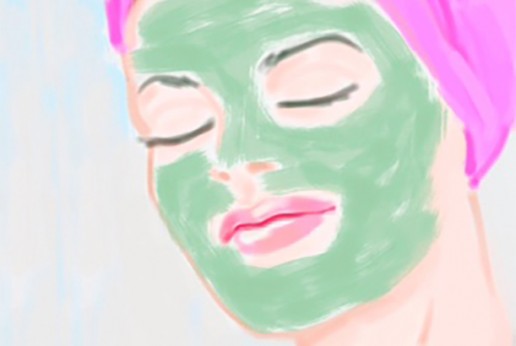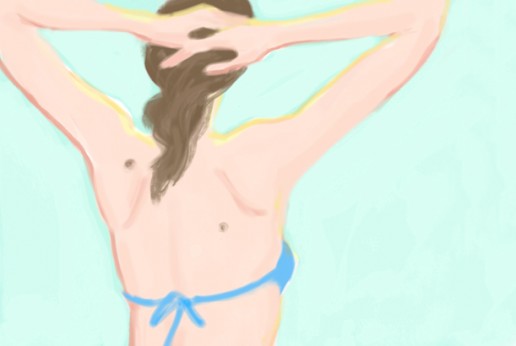Peeling
Peeling
Anti-ageing and treatment of acne
Acne and blemished skin can be effectively treated with a peeling. There are various types of peelings:
Jet peeling: This deep peel is an innovation from the USA, which is exceptionally gentle, painless and effective. DERMATOLOGIE des WESTENS is now also using jet peeling to treat acne, scars and wrinkles. The application rejuvenates the skin texture in no time, by reducing lines and improving the complexion.
Fruit acid peeling: Fruit acid reduces the cohesion of scaly, dead skin therefore loosening them for easy removal. It has a moisture-regulating effect and stimulates cellular metabolism. Treatments are given bi-weekly over a period of 2 to 3 months. During this time, the concentration of the acid is continuously increased. The treatment is generally well-tolerated and can even be performed during your lunch break. That’s why it is also known as the “lunch peeling”. Fruit acids are particularly effective for patients with acne and pigmenting.
Trichloroacetic acid (TCA): TCA peelings are used for medium-deep and deep peelings. Their application is used to treat wrinkles and extensive pigmentations. The peeling effect is so intense, that you will want to plan a downtime of approx. 1 week. But the result is well-worth it. Generally, 2-4 sessions in intervals of 2 weeks are performed. Local anaesthesia is required, usually in the form of a numbing cream.
Microdermabrasion: This is an alternative to chemical peelings. Innovative state-of-the-art technology enables a particularly gentle and effective mechanical peeling. An extremely fine quartz sand is sprayed on to the skin and immediately removed again by suctioning. This treatment is especially suited for treating discolorations/pigmentations and blemished skin. All types of skin can be treated; even darker complexions and treatment can also be performed during the summer months. Microdermabrasion is an ideal preparation and follow-up treatment for a chemical peeling.
Some additional tips:
- In the shower, massage your upper arms, thighs and buttocks with a body brush, a coarse sponge or a peeling solution. After drying your skin, rub on some lotion or cream containing urea.
- On vacation, you can treat yourself to a completely natural peeling by rubbing your skin with fine beach sand and subsequently creaming the cleaned skin.
- The right peeling for you and the number of required treatments will be determined in a comprehensive and individual consultation, based on the diagnosis and skin type.
Photodynamic Therapy (PDT)
PHOTODYNAMIC
THERAPY (PDT)
Treatment of preliminary stages of skin cancer
Photodynamic Therapy (PDT) is an innovative method, which enables the early detection and treatment of skin cancer before the formation of metastases. Photodynamic therapy is an highly effective method of scar-free treatment of pre-cancers (so-called actinic keratoses), tumours and superficial basal cell carcinomas (also known as basaliomas). It is generally a two-step process: A medication is applied to the changed skin area in the form of cream, gel or patch, whose active ingredients penetrate the cancerously affected skin cells within a few hours. Subsequently, the substance is activated in the practice using a special light source, consequently killing the malignant cells and promoting the formation of healthy cells in their place.
The specialists at Dermatologie des Westens have more than one decade experience in the application of photodynamic therapy. The Dermatologie des Westens Training Centre for PDT, founded in 2013, provides training in this procedure for medical specialists.
Photodynamic treatment is not compensated by statutory health insurance policies. Private health insurance providers generally reimburse the treatment costs.
For more information: www.biofrontera.com
Skin cancer
SCREENING FOR SKIN CANCER AND
SKIN CANCER TREATMENT
Early detection is crucial!
The organ that is most frequently afflicted with tumours is our skin. Tumour diseases of the skin are on the rise. Ultraviolet light is thereby the most significant contributing factor for the development of malignant tumours, white and black skin cancer. Today, increased exposure to the sun begins early with childhood leisure activities. Early detection of skin tumours can save lives.
What we offer you:
Screening for skin cancer with incidence light microscopy: This is a particularly thorough examination of the entire skin organ from head to toe. This naturally includes the analysis of all pigmented lesions using incidence light microscopy.
Complete check with incidence light microscopy and videography: In addition to our screening for skin cancer, this also includes photographing and examining conspicuous moles and skin changes with computer-aided microscopy (FotoFinder®). This procedure offers optimal diagnostic security in the progressive evaluation of pigmented skin changes and moles. Even the smallest changes can be identified. Skin cancer and its pre-stages are detected at the earliest possible moment.
- Electronic data storage enables a detailed comparison to previous findings for examinations at a later date.
- Even minimal optical changes of moles are easy to detect and can be reliably evaluated by the dermatologist.
- Video documentation reliably prevents the unnecessary removal of moles.
We recommend a complete annual check to everyone of 18 years of age and up, especially those with moles and pigmented lesions.
At Dermatologie des Westens, preventive medical screenings are invoiced as private medical treatments. These costs are unable to be reimbursed by statutory health insurance policies. Private health insurance plans generally reimburse the costs in full.
An overview of the costs:
Screening for skin cancer with incidence light microscopy: ca. € 48.00
Complete check with incidence light microscopy and videography: ca. € 80.00 to € 100.00
The fee for medical services is individually calculated according to the current fee scale for medical practitioners in Germany (GOÄ) and depends on the specific services rendered.


